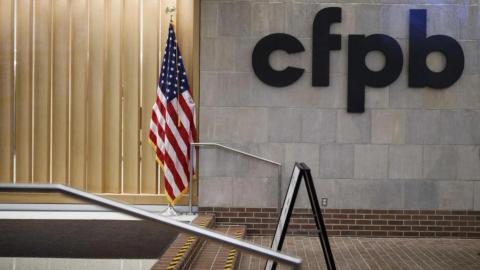
Similar Posts

Australia Mandates Credit Licenses for BNPL Providers: What You Need to Know
The popularity of Buy Now Pay Later (BNPL) services in Australia has surged, with around 40% of consumers using them last year. In response, the Australian government amended the National Consumer Credit Act to enhance regulatory oversight, requiring BNPL providers to obtain a credit license and comply with consumer laws. A new ‘low-cost credit’ category has also been introduced. The Australian Securities and Investments Commission (ASIC) has set a deadline of June 10 for BNPL firms to apply for licenses and register with the Australian Financial Complaints Authority, emphasizing the importance of compliance to protect consumers.

BNY Boosts Compliance Efforts with Advanced Behavox Quantum Technology
Behavox Quantum is revolutionizing BNY’s compliance management by enhancing monitoring across various communication channels and supporting over 16 languages. Tom Wileman, BNY’s head of global compliance assurance, highlights that this technology strengthens their compliance processes and risk management approach. Key features include comprehensive monitoring, multi-language support, and improved risk management strategies. The SaaS implementation also boosts efficiency, accuracy, and scalability, enabling BNY to adapt to evolving organizational needs. By adopting Behavox Quantum, BNY aims to solidify its leadership in compliance and risk management within the financial sector.

Unlocking the Future: NextGen Nordics 2025 Agenda on DORA, VoP, CBDC, Instant Payments, Fraud Prevention, and Generative AI
NextGen Nordics 2025 is a key conference addressing challenges and opportunities in the payments sector, focusing on evolving regulations and technology. Key topics include the Digital Operational Resilience Act (DORA), EU Instant Payment Regulation, payment fraud reduction, and the potential of Central Bank Digital Currency (CBDC). The event will feature expert panels discussing fraud prevention, Generative AI in payments, and the fintech role in the Nordic ecosystem. It offers networking opportunities for stakeholders in software, IT services, and banking. Sponsorship options are available for brands seeking visibility. Register now to participate in this pivotal event.

Marlin Acquires Majority Stake in Napier AI: A Game-Changing Investment in AI Technology
Napier AI, a London-based provider of AI-driven financial crime compliance software, is making notable advancements in the banking and asset management industries since its 2015 inception. Specializing in AML screening, the company has partnered with over 100 financial institutions, including HSBC and State Street, to enhance monitoring and regulatory reporting. Recently, Napier AI secured £45 million in funding from Crestline Investors and completed a majority investment from Marlin Equity Partners to boost its market presence through research, development, and global expansion. CEO Greg Watson highlights the necessity of modern solutions in combating evolving financial crime threats.

Trump Initiates Transformation of National Crypto Reserves; Bans CBDC Development
Former President Trump’s recent executive order on digital financial technology highlights the digital asset industry’s role in fostering innovation and economic growth in the U.S. Key components include the formation of a working group tasked with delivering a report on regulatory proposals within 180 days, and the potential creation of a national digital asset stockpile for seized cryptocurrencies. The order also prohibits the development of Central Bank Digital Currencies (CBDCs), reflecting concerns about privacy and their impact on traditional banking. This executive order represents a significant shift in the regulatory landscape for digital assets, balancing innovation with caution.

US Judge Overturns CFPB’s Limit on Credit Card Late Fees: What It Means for Consumers
US District Judge Mark Pittman has granted a request from the Consumer Financial Protection Bureau (CFPB) and various banking groups to eliminate a controversial rule that limited credit card issuers’ fees. The judge ruled the rule violated the Credit Card Accountability and Disclosure Act of 2009, potentially reshaping credit card operations. This regulation, aimed at reducing late fees for consumers, was projected to save Americans over $10 billion annually. The CFPB is undergoing changes under acting Director Russell Vought, including reversing certain rules and dismissing lawsuits against major banks. Recent legislative actions have also reduced regulatory oversight on tech companies in financial services.
